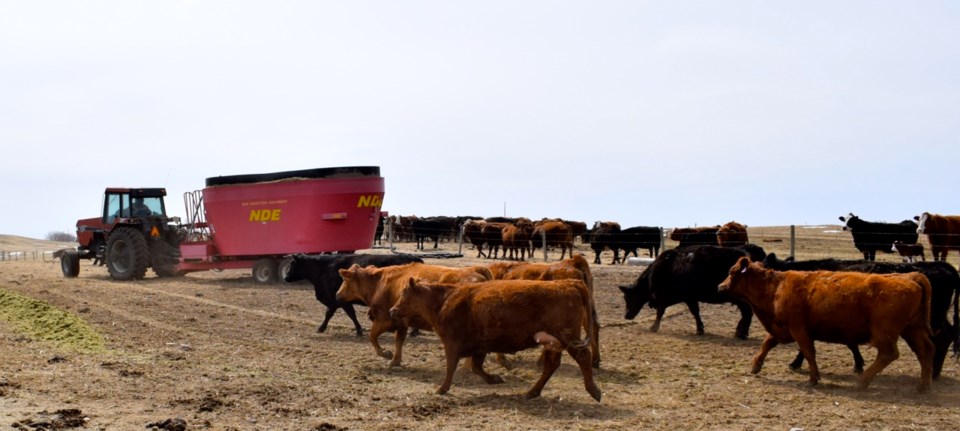REGINA — Agriculture in Saskatchewan plays a lead role in economic stability and environmental sustainability, it’s the fabric of rural communities, says the Saskatchewan Association of Rural Municipalities.
SARM says it shares the responsibility of ensuring producers are given the opportunity to succeed. One in eight jobs in Saskatchewan is tied to agriculture, underscoring how deeply it affects the vibrance of rural economics, SARM says.
“Producers play a pivotal role in the fabric of our province, we can’t deny the frustrations in our agriculture sector with the lack of business risk management resources, particularly for cattle producers in the province,” says Bill Huber, acting president of SARM.
“Producers already play the game of risk with weather, disease, feed shortages and price fluctuations. For the livestock industry to continue to thrive, we need the right business risk management resources tailored to them.”
The livestock industry has dealt with drought resulting in feed shortage, an exit of producers from the industry, a turnover of land from grass to crop, and non-transparent pricing, SARM asserts. SARM says the government should support livestock producers on the same playing field as other commodity producers.
"The current eight years of drought has exposed the lack of responsive business risk management programs for Saskatchewan’s livestock producers,” says Jeff Yorga, president of Saskatchewan Stock Growers Association.
“Spotty rains can provide a false sense of security and allow policymakers to delay implementation. If the province of Saskatchewan wants a healthy, thriving beef cattle sector, BRM programs must be addressed now to stem the tide of producers leaving the industry and allow for long-term planning.”
The province leads the nation in various agricultural outputs, including livestock. In 2021 alone, agriculture contributed over $13 billion to Saskatchewan’s GDP, employing thousands across the province directly and indirectly.
The struggles of producers should not be overshadowed, they are a pillar of prosperity for the province, SARM says. SARM says it wants a future with livestock producers given ample opportunity for BRM programming that assists in price transparency, risk support for climate variability, market fluctuations and evolving regulatory frameworks.
The next step in supporting the livestock industry is establishing made-in-Saskatchewan solutions, SARM says. The organization lists options that could be implemented to support the industry in the coming calendar year:
- Cost share livestock price insurance
- Fast track the satellite-based forage rainfall pilot
- Implement Alberta’s beef-focused AgriStability pilot in Saskatchewan
- Work with Ag Canada to speed the development of the revenue insurance mode
“We must address these challenges and the risks producers face,” says Huber.
“This requires proactive policies that support producers, promote research and development, and enhance market access. Agriculture is crucial for Saskatchewan’s prosperity and growth. We need the government to support agriculture by investing in the future of our livestock industry. If we can foster programs that encourage producers to stay in the game, the ripple effect will enhance rural communities, foster economic resilience, and ensure Saskatchewan remains a global leader in sustainable and innovative agriculture.”
2024 Provincial Election Priorities
The following are SARM’s key areas of focus for the upcoming provincial election.
- Infrastructure
- Health care
- Policing and crime
- Agriculture




